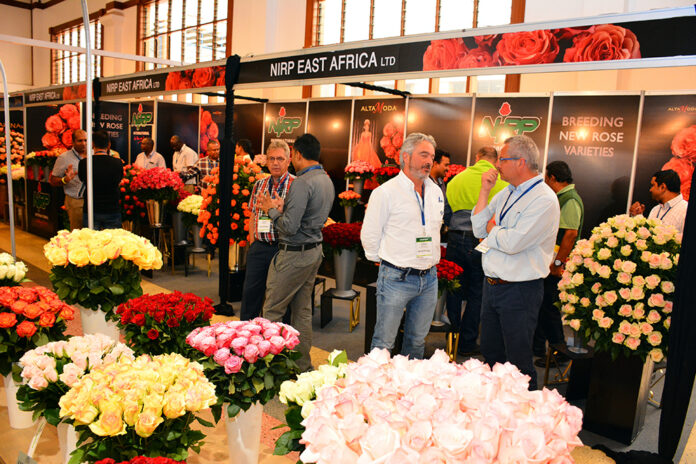The 11th International Floriculture Trade Expo (IFTEX) has today kicked off in Nairobi with up to 20% increase in exhibitors showcasing their finest blooms.
Happening at Visa Oshwal Center along Ring Road Parklands within 7000 square metres area, this years’ event has attracted about 200 exhibitors with representatives from 75 countries and is running from 4th-6th this month.
According to Dr. Idris Salim Dokota, the Principal Secretary, State Department for Cabinet Affairs, this year’s expo is particularly special following the increased number of sector players interested in displaying some of their products, innovations and technologies poised towards growing the industry.
“We are thrilled to host representatives from 75 countries, each contributing to the vibrant tapestry of our global floriculture community,” said Salim in a speech delivered on behalf of the Deputy President, Rigathi Gachagua during the event opening ceremony.
Happening under the theme of ‘Sustainability’, the PS said this resonates deeply with the government’s commitment to nurturing Kenya’s floriculture.
“Kenya’s floriculture sector has long been a beacon of our nation’s entrepreneurial spirit, innovation, and resilience. This spirit has propelled our country to become a global leader in floriculture, contributing significantly to the economy, creating jobs, and enhancing the livelihoods of over 2 million Kenyans,” said Salim.
Profitable sector
On his part, Mr. Christopher Kulei, the Board Chairman at the Kenya Flower Council (KFC) said that the country’s floriculture industry has matured into a profitable, sustainable, and competitive sector, meeting the highest international standards for environmental, social, and good agricultural practices.
“With around 5,000 hectares dedicated to flower cultivation, the industry exports over 200,000 tonnes of flowers annually, valued at $900 million, bringing in vital forex revenues to the economy,” said Kulei.
The lobby group identifies floriculture as the horticulture sub-sector which has employed 1 million people indirectly most of whom are involved in the supply of goods and services while affecting lives of over 4 million people. It accounts for more than 70% of total horticultural exports, employing over 200,000 workers, most of them in rural areas.
“With Kenya’s rich soils, advanced technology, and excellent human capital, we could double Kenya’s exports in the next 10 years, of course with cooperation between public and private sectors, good regulations in place and providing incentives for growers and exporters,” said Kulei.
Also speaking at the opening ceremony, IFTEX organizer Dick Raamsdonk said that this year’s expo could see over 3,000 visitors attending from various countries.
“Kenya has grown to become a big player in the global floriculture industry and this is why many people including growers, traders and enthusiasts would love to grace IFTEX yearly,” said Raamsdonk.
Carbon Credit Trading
Among other initiatives put forward by the government to advance the sector such as implementing policies that facilitate a conducive business environment, modernizing transportation networks, promoting eco-friendly practices and improving trade partnerships, the government is also in the process of enacting the Carbon Credit Trading and Benefit Sharing Bill of 2023.
The proposed legislation aims to create a robust regulatory framework for carbon credit trading and benefit-sharing.
It will also establish an Authority to oversee these activities, provide for the registration and regulation of carbon trading businesses, and set up a Carbon Credit Trading Tribunal to address disputes.
“With this, our flower farms can generate additional revenue by engaging in carbon credit projects. By adopting sustainable practices and reducing their carbon footprint, they can earn carbon credits that can be traded internationally,” said Salim.
This will not only support our environmental goals but also add a new income stream for our farmers, enhancing their economic resilience, he added.








